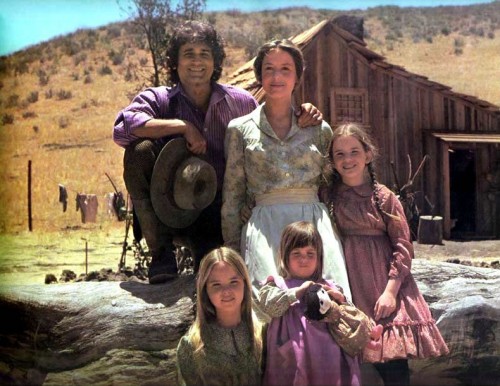The Chemistry of Things: Shaping a Short Story Collection
I am trying to find the right shape for a short story collection. The more I try to put together a cohesive body of work, the more I realize that organizing a short story collection is a matter of chemistry, of finding the perfect combination of elements that will create new matter. Even though my collection is largely out of my hands at this point, the shape of it has been in flux. I’m also trying to figure out what work to collect for a second and third collection so I’m looking both forward and backward. I wish there was some kind of instruction manual for this. When I first began assembling my full length collection, I had no idea what I was doing. I still feel that way. Part of the problem is that I have a lot to choose from. I’ve been writing and publishing since 1999, using four different names. Most of my earlier work wouldn’t be appropriate for a collection of the sort I am trying to assemble but it’s still there and some of it still worth considering.
I keep coming back to the same questions. What stories should I include? In what order should I place the stories? Why am I making these choices? How do I want readers to feel while they’re reading the collection? And after? How do I make readers fall in love with the book? How do I make them see what I’m trying to say? On the one hand, I could arrange a collection by theme because there are a few dominant themes in my writing but would that make the collection too uneven, not diverse enough in tone? I could arrange a collection with stories that all have female narrators or male narrators or that are written in the first person or second person. I could take a kitchen sink approach (my first attempt) to try and demonstrate the range of my writing. I just don’t know.
A Rambling On and An Appreciation of Good Stories

I have been thinking lately about traditional storytelling, experimental writing, narrative and anti-narratives. In a few threads here and on other sites, I’ve seen discussions alluding to narrative fatigue—a weariness for stories containing traditional elements like plot, exposition, linearity, etc. Experimentation is a vital thing so this is not a condemnation of experimentation but rather, a bit of appreciation for the traditional story.
My favorite story (though I enjoy all kinds of writing) is told simply and without artifice, one where I turn the page and can’t wait to see what happens next, where the characters are interesting and well-developed and where I am invested emotionally. I love reading something so great that I want to find everything that person has ever written immediately.
I was reminded of my love for a good story when I read Scott McClanahan’s Stories II, a collection of short stories completely stripped of any bullshit. From front to back, the author’s voice was clear, charming and genuine and it was one of the most refreshing, satisfying books I’ve read in recent memory. As I put the book down I thought, “That’s how it’s done.”
Paper Cuts has a Living With Music playlist by graphic journalist Joe Sacco, on the occasion of his new book Footnotes in Gaza.
And I’ve got a short double-review of two books about New York: Normal People Don’t Live Like This by Dylan Landis, and Ten Walks/Two Talks by Jon Cotner and Andy Fitch, over at Time Out New York.
Book-Buying: A Success Story, by Justin Taylor, Megan Casella Roth, Michael Kimball, and Dylan Landis
(1) I came across this review of Dylan Landis’s Normal People Don’t Live Like This, by Megan Casella Roth and published in The Rumpus. It sounded interesting so I linked it on this site in a round-up post.
(2) I came across this interview with Landis by Michael Kimball. It was fascinating. I (or somebody here) linked that piece too.
(3) I decided to buy the book, but then I had to go to Florida before I could make it to the store.
(4) Thought: I could order this from Amazon and it will be at my house when I get back. Didn’t do it.
(5) Thought: [in FL] I should get my mom to drive me from Grandma’s to the B&N. Maybe they’ll have it there, or at least checking for it will kill an hour. But then I thought “I’d really rather buy this from an indie store that I like,”and they don’t have those in that part of Florida, so I went back to reading my galley of Witz by Joshua Cohen.
(6) Got back to NYC. Went to St. Mark’s Book Shop on East 9th street and 3rd Avenue. The store had exactly one copy, which happened to be the exact number of copies that I needed. After taxes, it cost $16.33, which in round numbers is about what it cost to see Avatar with the 3D-glasses sur-charge and my half of the bag of popcorn I split with my mom at the Boynton Beach Cinemark Whatever, with the main difference being that the Landis book is not covered in “butter-flavored” floor polish–and unlike the 3D glasses, I don’t have to give the book back when the show is over.
CONCLUSION: It feels like this is how the system is supposed to function. I got interested in something, decided to buy it, and was able to do so in relatively short order. Not immediately, mind you, but that slight delay seems like it was a valuable part of the process. It helped me establish that my interest in the book was genuine, plus it gave me the chance to yearn a little. I didn’t buy the book used. I didn’t bug the publisher for a review copy. I wanted to read the book, and so I bought the book–new, from a store I respect, whose balance sheet I feel good about appearing on.$16.33 isn’t exactly piss in the snow, but it’s not a fortune either. It’s almost $2 less than the price of two Maker’s Mark on the rockses at a bar I like on West 13th street (before tip). It’s almost half of what a weekly subway pass costs.
And I’m writing all of this in advance of having so much as opened the book itself. I guess if I hate it I’ll wish that I’d had those 2 drinks instead, but I purposely chose to post this anecdote before forming an opinion of the book, because I think even if I don’t end up liking it, the acquisition process still counts as a success story, complete in and of itself. (Of course I expect that I will like it, and in any case will report back once it’s read.) Here is a proposal: Every person who cares about literature should start to do exactly what I did, and we should all do it more often. Once a month, go to a local bookstore, and take a chance on a brand-new full-price book that you are interested in. If we all did this, 2010 would probably be the best year for publishing in a decade.

